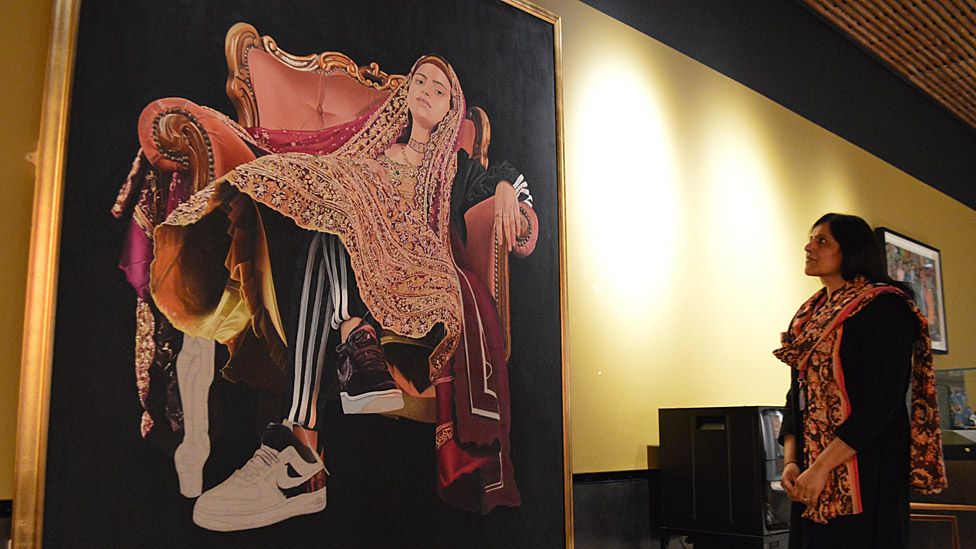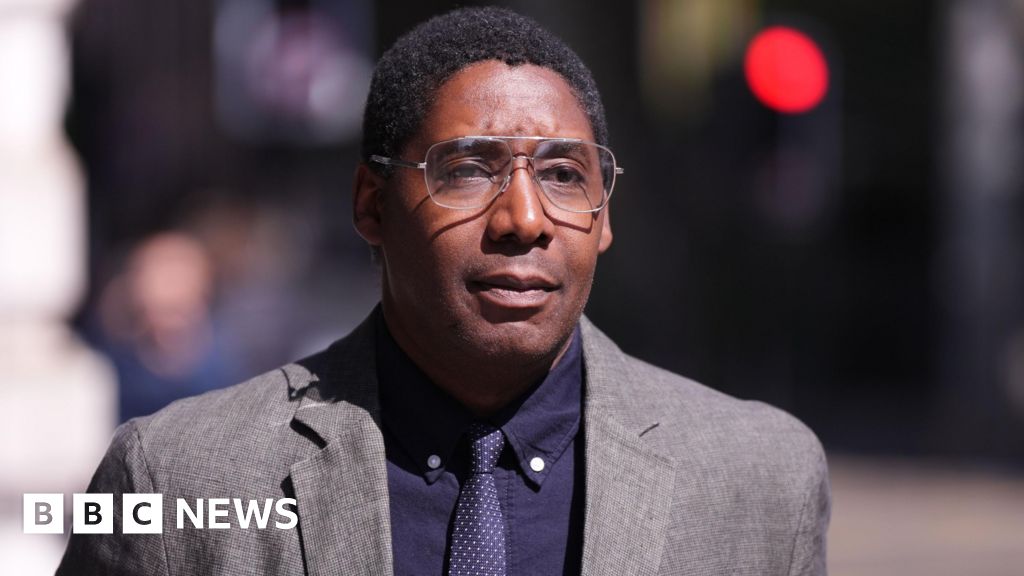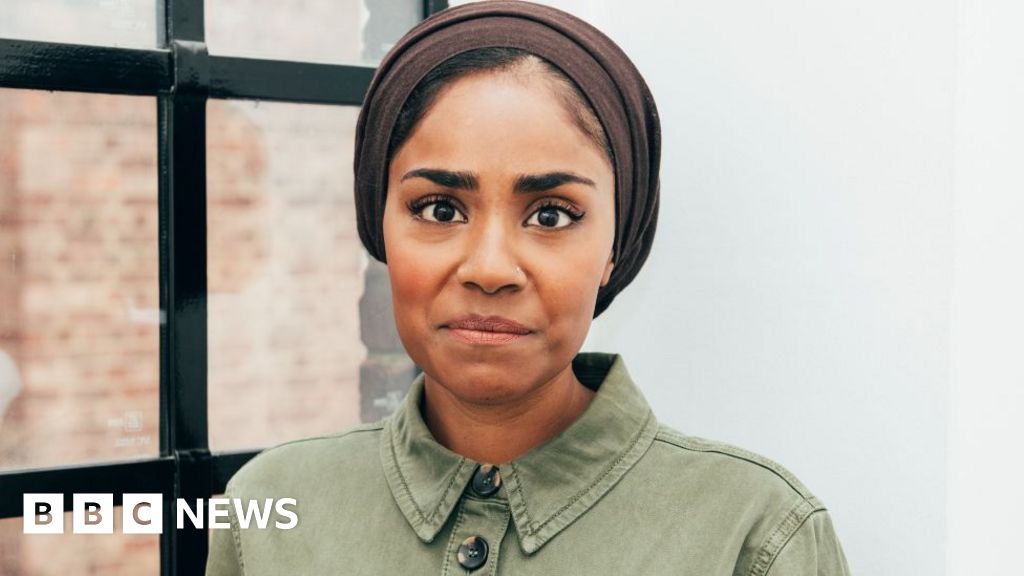ARTICLE AD BOX

Curator Nusrat Ahmed looking at a self-portrait by Manchester artist Azraa Motala
By Ian Youngs
Entertainment & arts reporter
A painted Bangladeshi rickshaw, a World War One uniform and flyers from 1970s gay nightclubs are among the exhibits chosen to offer a fresh view of South Asian culture in a new gallery.
Manchester Museum has created the gallery as part of its £15m renovation.
It says it is the "first permanent gallery in the UK to celebrate the lived experiences and contributions of the South Asian diaspora".
The South Asia Gallery has been curated by a group of 24 members of the public.
"We want to show the richness and diversity of South Asia," its co-ordinator Nusrat Ahmed says.
"It was to break down stereotypes and myths, and it was to highlight South Asia as being at the forefront of many things."
A World War One uniform is displayed alongside Army recruiting posters
Some of the collective of co-curators have lent their own items or possessions that tell family stories.
They include Fal Sarker, grandson of quantum science pioneer Satyendra Nath Bose, whose items include letters between Bose and Einstein.
Talat Farooq Awan, a BBC Radio Manchester journalist, found his great-grandfather's Army uniform on a visit to Pakistan, and persuaded his family to let him bring it back to the museum.
It is being shown alongside posters recruiting people for the British Army in languages including Urdu and Hindi.
"We really want to highlight that South Asians didn't just come in the 1960s and '70s," Ahmed says. "They were very much part of British life before then."
Image source, Getty Images
Image caption,A rickshaw has been decorated with Mancunian imagery as well as Bangladeshi designs
The gallery has been added as part of the overhaul of Manchester Museum, which will reopen on Saturday.
The objects donated by members of its curatorial collective have filled in gaps in the collections of Manchester Museum and the British Museum, which has also lent some items.
Other exhibits range from ancient pottery from the Indus Valley, to a Quran cube - an electronic speaker that recites part of the Muslim holy book - which a doctor kept next to his bed before he died from Covid-19 at the age of 32.
The collective was formed five years ago after incoming Manchester Museum director Esme Ward took more than 100 people from the local community out for dinner and asked what they wanted to see.
"For me, that was a turning point of how museums are doing things," Ahmed said. "They're actually asking us to talk about our heritage, rather than telling us."
The British Museum has lent a number of items to the South Asia Gallery
Another member, historian Anindita Ghosh, said: "It's a story of South Asia taught by South Asians themselves. And that's a very empowering spirit."
She has chosen to tell the little-known story of Mahatma Gandhi's visit to Manchester and Lancashire in 1931, when an Indian boycott of British cotton goods was causing hardship in English mill towns.
"His arrival was very different from what people expected," Ghosh said. "He was greeted very warmly.
"We have a very striking image of Gandhi surrounded by women millworkers. They absolutely embraced his presence."
She added: "I wanted to tell a story of the Empire, but of the Empire as a local story."
The museum has not been fully open for five years
Ward said the gallery was originally conceived as a chronological history of South Asia, but that she wanted to find a "more inclusive and more imaginative" way to tell the story.
The collective have provided a "different perspective" and have "led us to stories we'd never have imagined", she said.
The museum's new extension also houses its Egyptology collection, including mummies and vivid portraits painted of the dead at the time - but modern CT scans and facial reconstructions have been taken off display.
A biomedical approach is "absolutely at odds" with the sacred preservation of human remains, Ward said.
"We wanted to very explicitly say, 'No, we're not doing that, we are drawing a line. We are thinking through our care for these collections. And our care for these collections means not doing that sort of research in that context.'"
Looted artefacts
In 2019, the museum handed back Aboriginal artefacts that had been taken from Australia more than 100 years earlier.
It is now considering whether to offer back other items, including some from West Africa.
"What we're doing more widely is maybe moving towards a slightly more proactive approach to restitution than you would ordinarily have," Ward said.
"So, we have got other material that we are in the process of having those conversations about. For example, we have material that was looted from Benin.
"And like many other museums, we've been very explicit. We don't think we should have that material."

 2 years ago
72
2 years ago
72








 English (US) ·
English (US) ·